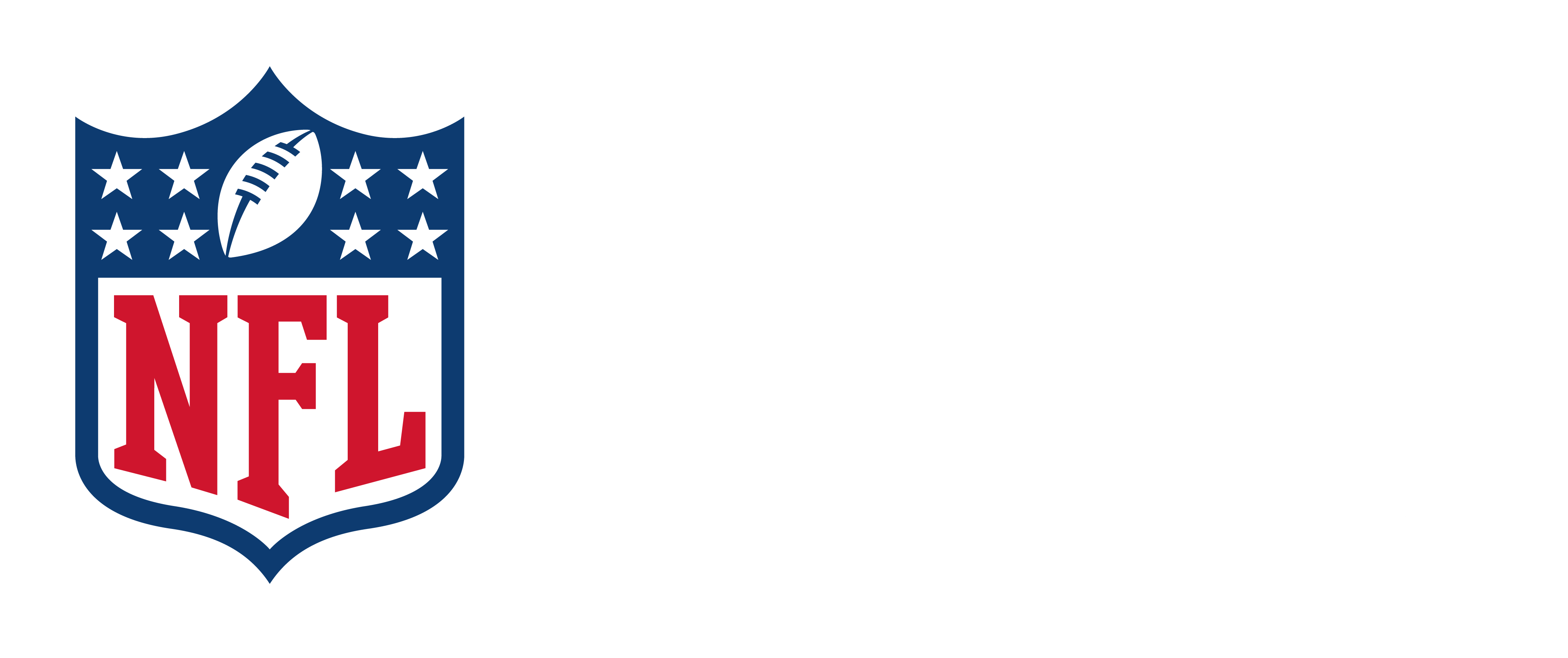The following are highlights from a media conference call to discuss the launch of the annual 1st and Future competition presented by Arrow Electronics hosted at Georgia Tech. The full transcript of the call follows.
SPEAKERS
- JEFF MILLER, NFL Executive Vice President of Health and Safety Initiatives
- RICH MCKAY, Atlanta Falcons President and CEO; Chairman of the NFL Competition Committee
- CHRIS SHERWOOD, Principal Engineering Consultant at Biocore, LLC
HIGHLIGHTS
Crowdsourcing rules changes for the punt play
JEFF MILLER: We think it's a great advantage to share this with a problem-solving community and help us address what we see on field to help make the game better, not just for the fans, but for the players who play it as well. One conclusion we've reached from work that's been done thus far especially around the kickoff is that the multi-disciplinary teams of engineers and scientists and medical professionals and most importantly football specialists, has led to interesting and creative solutions.
JEFF MILLER: We are going to take a look at the punt and we're going to ask a significant number of people—hopefully around the country and beyond—to take a look at the punt play and make suggestions for how we can improve it and where. And so, we're really excited about this. This is our first effort to crowdsource a punt—crowdsource a play, period. We thought that the experience last year with the kickoff led to important improvements that we'll evaluate at the end of the year, and ways to make that play as dynamic as it was previously, and also to mitigate some of the injuries that we saw our players suffering. So, why the punt? The punt play has, on average, about twice the level of concussive injuries that we see on your average run or pass play. So, it is something the Competition Committee has focused on over a number of years, that we on the health and safety and data analytics and engineering side have begun to focus on. In the same construct, we looked at the kickoff play to see if there are ways that play can be made safer, yet stay true to the integrity of the game.
CHRIS SHERWOOD: The data set for this competition will come from data from the 2016 and the 2017 seasons. We'll include in it game data, such as stadium and weather, play data, things like the game time and the score, but most of the data will really be centered around player data. One of those elements will be next gen stats, which is the XY position of every player on each play, as well as their speeds. We'll also include their traditional position, guard or cornerback, but also their punt-specific roles. Things like the gunner, the vice, the punt returner. One of the things we learned last year with the kickoff is that when you make rules changes, this is going to lead to different strategies and some of the player roles will change, and that in turn can lead to different player positions on the field. We've seen in the kickoff that the number of offensive lineman and defensive lineman has decreased and so we think that these two different ways to describe players, their traditional position as well as their punt-specific role, is an important part of this data set.
On modernizing the game of football
RICH MCKAY: The athletes do change, and as they do, schemes change, they get updated. And we need to modernize the game. We did that with the extra point a number of years ago, we did that with the kickoff, and it's cool to see that in this challenge, we will be talking about doing it with the punt.
On the elements of a rules change
RICH MCKAY: When you modernize plays and you go to improve a play, you're going to look at safety. One of the first things you're going to look at is what's the impact of safety on this play, have we made the play safer? Competitiveness – how does it affect the competitive aspects of the game? In our case, the punt play right now has some challenges in competitiveness given the fact of the high penalty rate, but it definitely has the chance to be refreshed. And then you look at fan engagement. All three of those get looked at as you go into forming the modernization of rules.
On the Competition Committee's process
RICH MCKAY: We love the idea that it's going to be brought to the fans, its great fan engagement. Let's see what they can bring us with the data that will be provided. And then what we would do as a committee, so you know, is we would bring it, we'd talk about it in February, we'd talk about it again in March, we'd probably then engage the special teams coaches with these ideas and begin to work on it to see if there's not something we couldn't institute for next season or at least in seasons to come, because this play is the play we think is ready and ripe to be modernized both in the safety standpoint and in a competitiveness standpoint.
FULL TRANSCRIPT
Moderator: This afternoon on the call we have Jeff Miller, the NFL's Executive VP of Health and safety Initiatives; Chris Sherwood, with Biocore, who focuses on biomechanics and research; Rich McKay, President and CEO of the Atlanta Falcons and Chairman of the NFL Competition Committee; and Jeff Crandall, as well, who is the Director of the Center for Applied Biomechanics at the University of Virginia and Chairman of the NFL's Engineering Committee. I'll now hand it over to Jeff for a brief overview.
Jeff Miller: Thanks, Jill. Good afternoon everyone, thanks for joining us. I'll provide some introductory comments, describe the competition and then turn it over to Rich McKay and Chris Sherwood for their comments. Many of you are familiar with the annual event that we host at Super Bowl called 1st and Future, which is designed to bring in disruptive ideas around player health and safety, and training to advance the health and safety of our athletes. We have done this the last few years and awarded a number of companies with financial prizes and Super Bowl tickets as part of our initiative to create incentives for innovation around our game—the 1st and Future platform being one that gives a lot of attention at Super Bowl.
This year, we're going to have another 1st and Future event; it's going to have two categories. One is Innovations to Advance Athlete Health and Safety. As we typically do, we'll take all submissions for innovative ideas and product concepts that could improve player health and safety, and we're going to work with Georgia Tech to manage that. We'll invite a number of finalists to Super Bowl to pitch their ideas and concepts and award a grand prize winner with $50,000 and tickets to the Super Bowl, and the second prize winner $20,000 and tickets to the Super Bowl. But, the main focus of today's call is around the other category that we're introducing for the first time today and calling the NFL Punt Analytics Competition. This is an effort to reach out to data analytics experts to help us take a look at the punt play and come up with informed, creative submissions about potential changes to that rule designed to reduce player injury during punt plays. The challenge is going to utilize crowdsourced data—which we'll let Chris Sherwood go into in a minute—this is based upon real NFL punt plays, speeds, contact, injuries, and other elements that he'll talk to you about, and ask creative data analysts to come up with ideas to help improve the play and remain true to the integrity of the game. Four of the best submissions will be invited to the Super Bowl to present their ideas. Each will be awarded with $20,000 and some of the winning teams will also compete for Super Bowl tickets.
So, this is based on the work that we did last year with our Competition Committee on the kickoff play, where they had asked our engineering group—which as many of you know has been taking a look at all injurious plays over the past several years—to try to create an environment where better protective equipment can be built against concussions and other injuries. One of the outgrowths of that significant work over the last three years has probably been a better appreciation for what happens on field when our players suffer injuries than ever before. And as we've learned more by taking a look and deconstructing each of these plays, we've shared it with the Competition Committee, with Rich McKay, with Troy Vincent and others, and talked about trends that we were able to identify from substantial video review. As a result of the Competition Committee asking us to take a look at the kickoff play, we were able to help inform some of the changes that they made to that rule. Similarly, we are going to take a look at the punt and we're going to ask a significant number of people—hopefully around the country and beyond—to take a look at the punt play and make suggestions for how we can improve it and where. And so, we're really excited about this. This is our first effort to crowdsource a punt—crowdsource a play, period. We thought that the experience last year with the kickoff led to important improvements that we'll evaluate at the end of the year, and ways to make that play as dynamic as it was previously, and also to mitigate some of the injuries that we saw our players suffering. So, why the punt? The punt play has, on average, about twice the level of concussive injuries that we see on your average run or pass play. So, it is something the Competition Committee has focused on over a number of years, that we on the health and safety and data analytics and engineering side have begun to focus on. In the same construct, we looked at the kickoff play to see if there are ways that play can be made safer, yet stay true to the integrity of the game. So, that's the topline.
Let me also introduce our partner—we have a partner as an official sponsor for the 1st and Future competition this year. We are really excited to join with Arrow Electronics. Also, with Georgia Tech. Arrow is our official sponsor, a company that's on the cutting edge of innovation. They provide over a 150,000 technology companies around the world with electronics and enterprise computing solutions. And they're devoted to advancing new ideas to make life better, so we think they are a great partner for us in this regard. We are hosting the event at Georgia Tech, as many of you know, a premier technology focused institution, one of the top research universities in the country. Georgia Tech's Advanced Technology Development Center is the state's technology incubator, and they'll be managing part of the competition. We're happy to have Laura Diamond from Georgia Tech as their media relations representative joining us on the call.
So with that, again, excited to work with Arrow and Georgia Tech on this. I'm going to introduce Rich McKay, who will share his perspective on this competition from the Competition Committee viewpoint. Rich, let me turn it over to you.
Rich McKay: Thank you, Jeff. For me, Competition Committee wise, every year we look at all aspects of game and we look at it many different ways. One of the ways we look at it is from fan suggestions. We get them all the time. We put them all together. We also look at club input, we look at statistics, we look at video. And to Jeff's point, what's really happened to us and benefited us in the last five years is a lot of new data that has been collected at the league level and then analyzed by people like you will hear talk today from both Jeff and Chris, from an engineering standpoint, and really given us some really good insight when it comes to safety and when it comes to the potential for rule changes that could impact safety.
So, for us last year, the kickoff was a good example as Jeff described. We had known for years that we wanted to make modifications to the play. We had made tweaks to the play. We obviously moved the kickoff back from the 35 to the 30, which reduced kickoffs and immediately reduced the number of injuries but didn't really change the play. And then we took the data and the engineering studies that we got from Biocore and we gave them to the Competition Committee and then we ended up giving them [inaudible] creating a really cool mechanism where we were able to incorporate a bunch of special teams coaches, challenge them, ask them with this new data and this new information, could they give us ideas on modifications of the play. We came together and we created really what looks like a new play, or a modernization, if you will, of the kickoff play. We are not scared as a league to modernize the game. The athletes do change, and as they do, schemes change, they get updated. And we need to modernize the game. We did that with the extra point a number of years ago, we did that with the kickoff, and it's cool to see that in this challenge, we will be talking about doing it with the punt.
For years, the frustrating part of the punt has been its injury rate and also its penalty rate, both of which are high. The penalty rate on the punt is the highest we have on any play in football, and as you know fans are not big fans of ending in a penalty, and that's one thing that we definitely want to look at as we look at all of this data and talk about changing this play.
So for us, we love the idea that it's going to be brought to the fans, its great fan engagement. Let's see what they can bring us with the data that will be provided. And then what we would do as a committee, so you know, is we would bring it, we'd talk about it in February, we'd talk about it again in March, we'd probably then engage the special teams coaches with these ideas and begin to work on it to see if there's not something we couldn't institute for next season or at least in seasons to come, because this play is the play we think is ready and ripe to be modernized both in the safety standpoint and in a competitiveness standpoint. That's kind of as we see it Jeff, and I'm happy to answer questions later after we have the engineers talk.
Jeff Miller: Rich, thanks for that. Let me take you to our last speaker, Chris Sherwood, who is a consultant to the NFL with the firm Biocore, which is a group of biomechanical engineering scientists who advise the NFL on our Engineering Roadmap, on the analysis that goes into some of these plays that Rich has referenced. Chris will walk you through briefly the elements that were pulled together that are going to be shared with this broader community in an effort to better understand the play and to come up with some possible suggestions for how to improve it. Chris…
Chris Sherwood: Thanks, Jeff. The data set for this competition will come from data from the 2016 and the 2017 seasons. We'll include in it game data, such as stadium and weather, play data, things like the game time and the score, but most of the data will really be centered around player data. One of those elements will be next gen stats, which is the XY position of every player on each play, as well as their speeds. We'll also include their traditional position, guard or cornerback, but also their punt-specific roles. Things like the gunner, the vice, the punt returner. One of the things we learned last year with the kickoff is that when you make rules changes, this is going to lead to different strategies and some of the player roles will change, and that in turn can lead to different player positions on the field. We've seen in the kickoff that the number of offensive lineman and defensive lineman has decreased and so we think that these two different ways to describe players, their traditional position as well as their punt-specific role, is an important part of this data set.
We'll also include information on the concussions, the players who suffer concussions on these punt plays. We will have more details – this comes from our video review process – on the player. Things like their activity, were they tackling or were they blocking, and in player-to-player impacts, we'll also include information on their partner.
So, this data set will be made available to the online data analytics community through Kaggle, and the submissions that come in will have two aspects. First will be whatever proposed rule changes that they have developed, but a critical part of this is that they provide an analysis that supports their rule changes based on the data that comes from this dataset. The aspect of this competition that's important is that it be data driven. And so just coming up with proposed rule changes is not enough. It really needs to be based on and have data that supports it.
Jeff Miller: Chris that's fabulous, thanks. Let me just summarize and we'll be happy to take questions if anybody has any. Again, there is going to be two categories, Innovations to Advance Athlete Health and Safety, and the finalists will be invited to Atlanta. And the winners of the Punt Analytics Competition will similarly be invited to Atlanta. People can enter by going to www.nfl.com/1standfuture. That is open now. And applications will close on January 9th, so we have a good amount of time for people to get working on this. As Chris suggested, there is a lot of information that was pulled together for the first time to share with the public around a particular play, play type, and a lot of the specific analysis that we do on a daily basis on the engineering side to better understand what happens on field. We think it's a great advantage to share this with a problem-solving community and help us address what we see on field to help make the game better, not just for the fans, but for the players who play it as well.
So, one conclusion we've reached from work that's been done thus far especially around the kickoff is that the multi-disciplinary teams of engineers and scientists and medical professionals and most importantly football specialists, has led to interesting and creative solutions, and so we're broadening that problem-solving community to include data analytics and people who can help address this too through Google's platform Kaggle. So, again, people should to nfl.com/1standfuture and send us their ideas. We are excited to engage with them. So, with that we can stop and take some questions.
Kevin Seifert (ESPN): Hey guys. I'm curious as to you guys have looked at the punt to this point, I know with the kickoff it was identified eventually that the wedge was the culprit in a lot of injuries and that was the focus of the changes. Is there anything similar to that in the punt that is in need of immediate attention?
Jeff Miller: Kevin, this is Jeff. That is exactly the sort of question we're looking to this broader base of data analytics professionals to identify for us. When we looked at the kickoff with the engineers and with the Competition Committee, we found trends from the video that we saw manually, and it showed up in the data, as we checked from each injury-causing play, what characterized that play. So similarly, as we take look a look at the punt, we are hoping to benefit from the aggregation of a lot of information and from a lot of insights from the problem-solving community to help address those types of issues and I'm sure many others that we haven't thought of. Rich, I don't know if you wanted to add to that?
Rich McKay: We have not seen the data that would deal with the concussions and the cause of concussions on punts from the standpoint of, is there one particular area or point of contact. I have not seen that. I have seen all the data over time on the injury rates, the concussion rates, but again that's high-level data. The drill down I think is what we'll see this year. That's what we've seen on the kickoff the last two years and that's what really helped drive some of the changes we made last year.
Sam Farmer (Los Angeles Times): This is probably best suited for Jeff and Rich. Do you have any anecdotes, whether it's this competition or otherwise, of suggestions from fans, whether it be equipment rules, something like that, that actually affected change, and if so, can you explain those?
Jeff Miller: Sam, I can do the equipment side, and I'll let Rich talk from the Competition Committee side. We have a platform where we engage with ideas around innovative equipment ideas of any sort – helmets padding, material science, whatever the case – through a partnership with Duke University called the HeadHealthTECH Challenges, where we are receiving, literally, on an ongoing, evergreen basis, new ideas. I think at this point, we've awarded more than 30 different companies around the country and around the world on ideas that could eventually advance the health and safety of the sport. And as you know, preceding that relationship with Duke, we did a similar type thing with GE and invested, let me rephrase, granted companies who have shown some interesting ideas, some amount of money so they could get their ideas to market. The VICIS helmet is one example of that. So, we are constantly engaging with the market place and trying to advance new ideas on the new technology side. Rich can take it from the rules or Competition Committee side, if you'd like.
Rich McKay: You know Sam, I don't know that I'm going to point to one rule and say "boy a fan sent this in and that lead to change." I think we can say without a doubt that fans every year send every team about, let's just say, a hundred plus suggestions on rule changes, and those begin to affect our thought process as we get to the offseason and fill out the Competition Committee survey on what rules we think needs to be changed. I think that the Commissioner did a really good thing a couple years ago where he basically used a lot of fan feedback and said, we've got to take some of the dead time out of the game and we've got to find ways to do it without changing the competition on the field, and that's what we did in putting play clocks in after touchdowns, putting play clocks in after extra points. And when we did that, I would tell you that some of the football people, including myself, were concerned, hey, how's this going to impact the game? And it hasn't impacted the game at all and it has made the game flow better, and that was direct input from the fans.
Jeff Miller: Let me add one quick point, and I'm probably stealing part of Rich's message before, but the Competition Committee, as I understand it, has taken a look at the punt play for a number of years and has identified it as something they wanted to address. The benefit that we've gotten now from a lot of the data that's come in that characterizes what's happening on the punt play, or the kickoff last year, helped the Competition Committee sort of describe what it is they're seeing and how they want to go about fixing it. In this case, we are using concussions as an injury identifier in the data set, but this is really about much more than that. The number of soft tissue injuries and others that we see on the punt play, which we don't have data sets against yet, but we will over time, are going to help reduce injuries against much more than just concussions. I'm hoping that the information that we're giving to the Competition Committee or that this competition can provide is going to help them make interesting and informed changes to improving that play.
Rich McKay: When you go to improve a play, when you modernize plays and you go to improve a play, you're going to look at safety. One of the first things you're going to look at is what's the impact of safety on this play, have we made the play safer? Competitiveness – how does it affect the competitive aspects of the game? In our case, the punt play right now has some challenges in competitiveness given the fact of the high penalty rate, but it definitely has the chance to be refreshed. And then you look at fan engagement. All three of those get looked at as you go into forming the modernization of rules.











